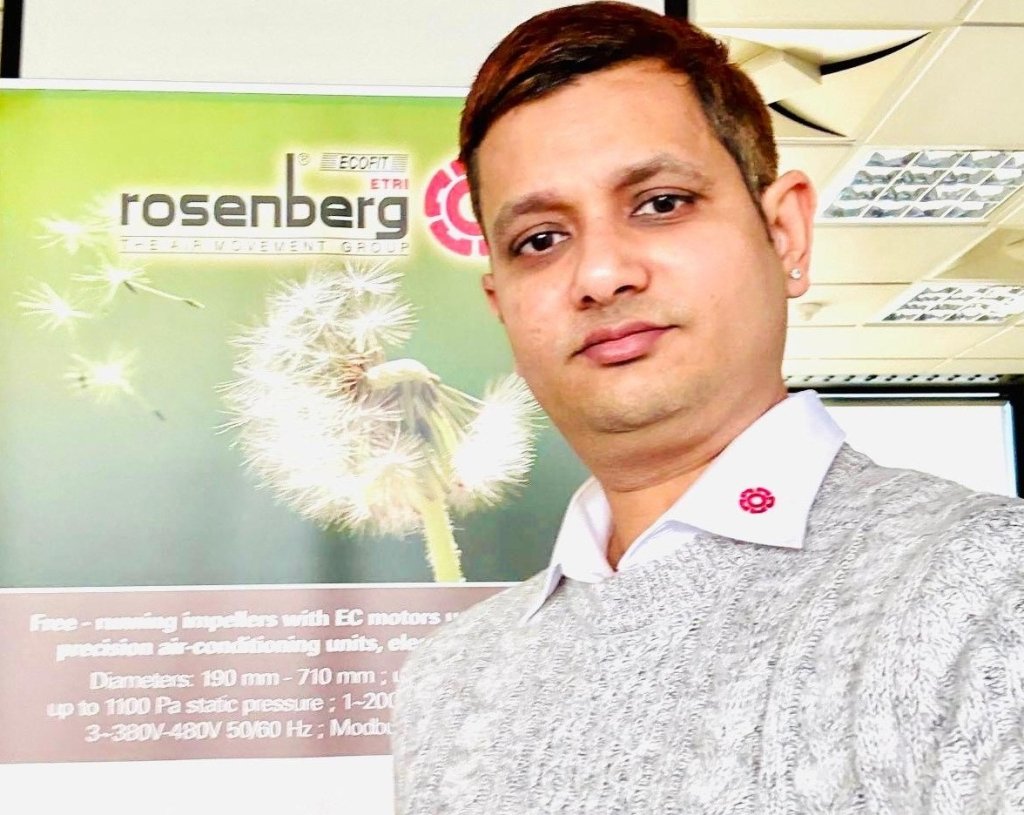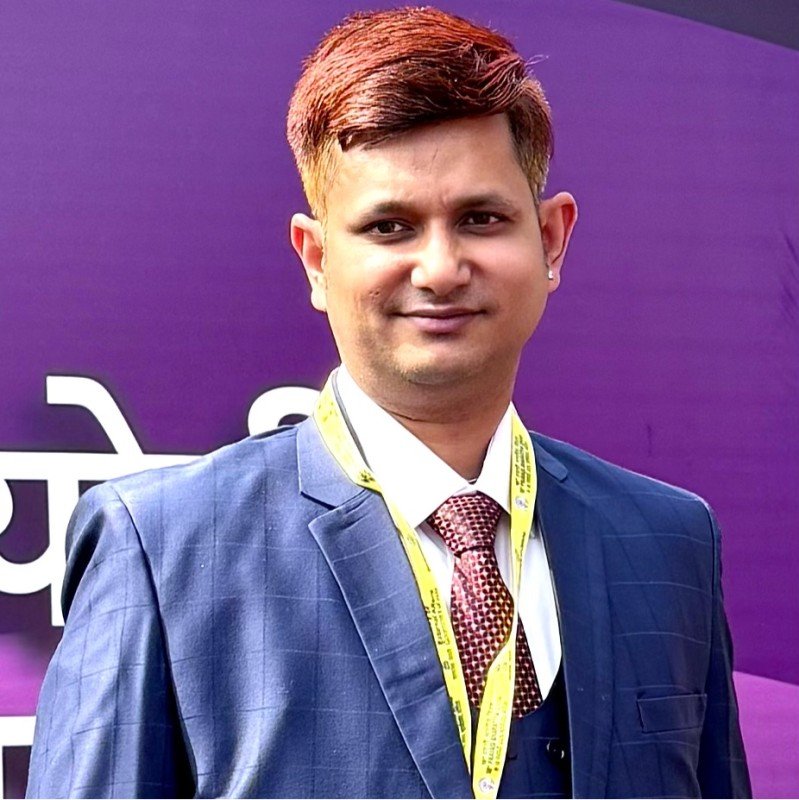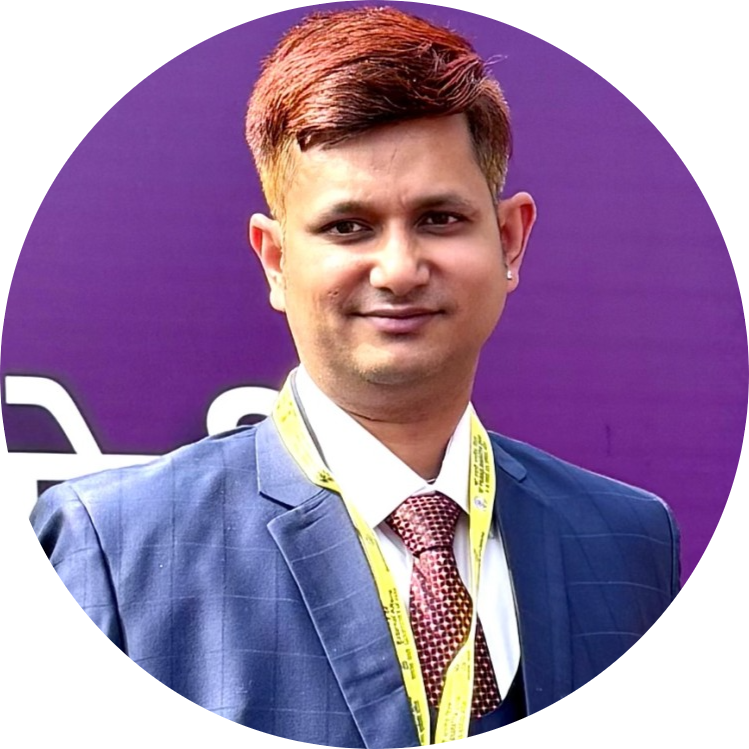How to Build an International Career in the Refrigeration Industry
An Interview with Sandeep Mohapatra
In today’s rapidly globalizing HVAC&R sector, international experience and cross-cultural expertise are in high demand. For many professionals, building a career abroad offers the chance to expand their technical skills, broaden their perspectives, and drive innovation in the industry. In this interview, we speak with Sandeep Mohapatra, a seasoned mechanical engineer with over 17 years of experience in refrigeration and air conditioning. Starting his career in India and now based in Australia, Sandeep shares insights on overcoming challenges, adapting to new markets, and the skills needed for long-term success in the global HVAC&R landscape.
Refrigeration industry: What motivated you to pursue an international career and make the move to Australia? Was this a long-term goal or a spontaneous decision?
Sandeep Mohapatra: I’ve always been motivated to pursue an international career, and Australia captured my heart as a place where I could truly immerse myself in new cultures while expanding my skills as a mechanical engineer. With 10 years of experience in the refrigeration field in India and close to a year in Oman, I developed a strong understanding of engineering principles, focusing on making systems run more efficiently and sustainably.
Over the past five years, I’ve explored the world of air conditioning field here in Australia while also staying connected to my refrigeration roots. This journey has been incredibly rewarding, giving me valuable insights into local industry standards and sharpening my technical skills. I’ve especially enjoyed working with diverse teams—mechanical contractors, consultants, architects, and facility managers—to manage various projects effectively.
It may seem like a spur-of-the-moment decision, but I had been considering working abroad for a long time. I carefully explored different countries that would align with my career goals and personal interests, and Australia stood out for many reasons—a strong economy, welcoming immigration policies, and a high quality of life. Not to mention, it offered the chance to learn more advanced engineering skills!
As I refined my career vision, relocating to Australia felt like the perfect strategic move. Looking back, it has truly been one of the most rewarding choices in my professional life, allowing me to contribute to innovative projects while growing both personally and professionally.
Ri: What were the biggest challenges you faced when transitioning to a new market, and how did you overcome them?
Sandeep Mohapatra: Transitioning into the Australian HVAC&R market brought several important challenges that contributed significantly to my professional development.
Regulatory Understanding:
Becoming familiar with local regulations was crucial. I invested time in learning about Australian laws and obtained relevant certifications through workshops and online courses. I also connected with industry professionals to enhance my knowledge of compliance.
Adapting to the Market:
I recognized that the Australian market has unique consumer expectations. To meet these demands, I carried out extensive market research to gain insights into local preferences. Based on this understanding, I adapted my services and enhanced my skills to better align with the desires of my customers.
Language Barrier:
When I moved from India to Melbourne, I encountered a significant language barrier. While I had a good grasp of English, understanding local slang was challenging. To overcome this, I engaged in regular conversations with native speakers and colleagues, which improved my language skills and increased my confidence in professional communication.
Building Connections:
I took the initiative to expand my professional network by attending industry events, seminars and joining relevant associations. This not only provided me with insights into the field but also helped establish a solid connection within the industry.
Ri: What are the key differences you’ve noticed between the refrigeration industry in India and Australia, particularly in terms of project implementation and customer expectations?
Sandeep Mohapatra: The refrigeration industries in India and Australia present exciting opportunities for growth, especially regarding project execution and meeting customer needs.
Regulatory Landscape:
Australia has strict rules around energy use and refrigerants. India could benefit from tightening its regulations to ensure more sustainable projects.
Tech Trends:
Australia is quick to adopt new, energy-efficient technologies, which could inspire similar investments in India and support industry modernization and environmental improvements.
Project Size:
The various projects utilizing natural refrigerants in Australia underscore the significance of thorough planning, which could prove beneficial for India.
Understanding Customers:
By focusing on sustainability, Australian businesses are responding to evolving customer values. Indian companies can also promote energy efficiency in their offerings to attract more environmentally conscious clients.
By sharing insights and learning from each other, both countries can accelerate the development of their refrigeration industries and achieve significant growth.
Ri: How did your experience in India help you succeed in the Australian HVAC&R market? Were there specific skills or knowledge that proved especially valuable?
Sandeep Mohapatra: I’ve had quite a journey exploring the refrigeration field in India. It was an amazing learning experience, involving various areas like controlled atmosphere cold storage facilities, potato and seed storages, fruit and vegetable cold storages, banana ripening chambers, blast freezers, dairy product storages, walk-in cold rooms, frozen chambers for meat processing plants as well as Vaccines, and even cool rooms for flowers.
My time in India has greatly shaped my success in the Australian HVAC&R market in several impactful ways:
- Cultural Adaptability:
Working in India opened my eyes to the diverse needs of customers, which is essential in Australia’s multicultural landscape. - Technical Skills:
The hands-on experience I gained with various projects gave me a solid technical foundation, making it easier to navigate the Australian market. - Problem-Solving Ability:
The fast-paced environment in India honed my problem-solving skills, helping me tackle challenges more effectively in Australia. - Customer-Centric Approach:
Focusing on strong customer relationships in India has served me well in Australia, where customer satisfaction is a major factor in success. - Cost Efficiency Awareness:
Managing projects within tight budgets in India taught me how to find cost-effective solutions without compromising quality in Australia. - Networking Skills:
Building connections in India—meeting consultants, mechanical contractors, architects, and cold storage owners, as well as participating in seminars and presentations—has helped me create collaboration and growth opportunities in the Australian HVAC&R industry.
Overall, my experiences in India have been invaluable, equipping me with skills and insights that have truly benefited my work here in Australia.

Ri: Can you share a project or accomplishment in Australia that you are particularly proud of, and why it stands out in your journey?
Sandeep Mohapatra: I am currently working as a technical sales and support engineer in Australia. One of the projects I’m most proud of was selecting and implementing an energy-efficient product for a large commercial building.
This project stands out for several key reasons:
- Focus on Sustainability:
Our goal was to significantly reduce energy consumption, supporting Australia’s sustainability objectives and contributing to a lower carbon footprint. We achieved this by replacing old belt drive fans with our most energy-efficient EC plug fans, working closely with mechanical contractors for a smooth upgrade. - Team Collaboration:
Collaborating with a diverse group of consultants, engineers, facility managers, and contractors improved my leadership abilities and fostered a strong sense of teamwork. - Client Satisfaction:
The positive feedback we received from the client about the system’s performance and integration highlighted the importance of understanding and exceeding customer expectations.
Overall, this achievement underscores my dedication to sustainability, collaboration, and innovative problem-solving, while making a notable difference for the environment.
Ri: What advice would you give to engineers and HVAC&R professionals from emerging markets who aspire to build an international career? Where should they start?
Sandeep Mohapatra: If you’re an engineer or HVAC&R professional from an emerging market hoping to embark on an international career, here are some tips:
- Get the Right Qualifications:
Make sure you have a solid educational background and recognized certifications to enhance your profile. - Gain Local Practical Experience:
Don’t hesitate to take internships or entry-level positions—hands-on experience can be a game-changer and make you a stronger candidate. - Network Effectively:
Attend industry conferences hosted by organizations like AIRAH or Engineers Australia and connect with professionals on LinkedIn. Building your network can open up great opportunities. - Stay Updated on Trends:
Keep up with the latest innovations and regulatory changes in the HVAC&R field. Staying informed will definitely catch the attention of potential employers. - Improve Language Skills:
If you’re aiming for a specific country, learning the local language can greatly enhance your communication and help you fit in. - Develop Soft Skills:
Focus on improving communication, teamwork, and adaptability—these are invaluable in diverse workplaces. - Consider Further Education:
If possible, pursue higher studies abroad, especially in countries like Australia, to broaden your perspective and expand your network. - Find a Mentor:
Connect with someone who can guide you and offer support as you develop your career path. - Be Open to Opportunities:
Embrace different roles, even if they don’t perfectly align with your ultimate goals. Every experience can teach you something valuable.
Ri: How do you continue developing as a professional? What skills and knowledge do you believe will be essential for staying relevant in the HVAC&R industry over the next decade?
Sandeep Mohapatra: To keep progressing in the HVAC&R field, I recommend the following:
- Keep Learning:
Seek out training programs and certifications that interest you. Staying up to date on new technologies and regulations can give you a real edge. - Make Connections:
Attend conferences and seminars. Meeting other professionals can lead to valuable insights and networking opportunities. - Stay Informed:
Follow industry blogs and publications to keep abreast of the latest trends, like smart HVAC systems and energy-saving practices. - Get Practical Experience:
Don’t shy away from hands-on work or mentorship opportunities, as these can enhance your problem-solving skills and help you adapt to new challenges. - Think Green:
Developing expertise in energy management and sustainable technologies is an excellent way to meet the growing demand for eco-friendly solutions. - Be Open to Change:
Embrace new ideas and commit to lifelong learning. This attitude will help you thrive as the industry evolves.
Career Overview
Sandeep Mohapatra
Sandeep Mohapatra began his professional journey in India, establishing a strong foundation in the commercial refrigeration sector. With a degree in mechanical engineering and over 17 years of experience, he held leadership roles at companies like BITZER India, Patton Refrigeration, Motherson Zanotti, and Rinac India. His responsibilities included designing cold storage solutions, performing heat load calculations, selecting refrigeration equipment’s, and managing collaborations with engineering consultants and contractors.
Driven by a desire for personal and professional growth, Sandeep moved to Australia, where he joined Rosenberg Australia Pty Ltd as a Technical Sales & Support Engineer. His role focuses on delivering energy-efficient HVAC solutions and working closely with consultants, architects and industry professionals. Passionate about sustainability, he promotes energy-efficient designs to support the transition to net-zero emissions. Today, Sandeep is recognized for his contributions to the HVAC-R industry both in India and Australia.

